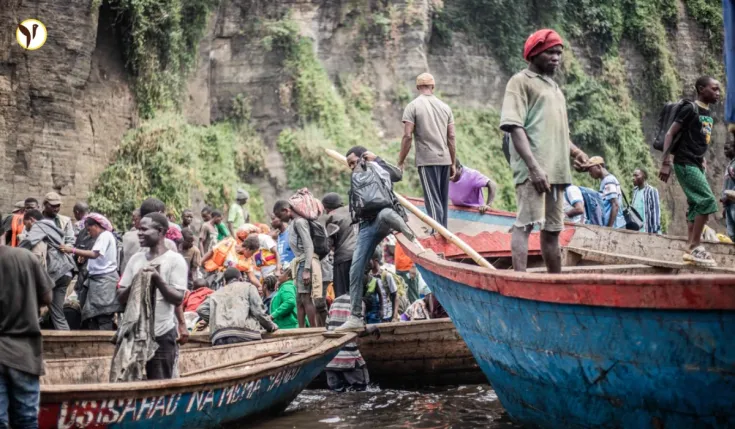🔥 Tragedy on the Congo River: HB Kongolo Boat Fire Claims Over 148 Lives
A devastating boat accident occurred on the night of April 15, 2025, on the Congo River near Mbandaka in the Democratic Republic of Congo. The motorized wooden vessel, HB Kongolo, was en route from Matankumu to Bolomba territory, carrying approximately 500 passengers. The fire reportedly started when a woman was cooking on board, leading to a blaze that caused panic among passengers. Many jumped into the river to escape the flames, but some were unable to swim and drowned.
🚨 Casualties and Rescue Efforts
-
Confirmed deaths: At least 148 people
-
Missing persons: Over 100 still unaccounted for
-
Survivors: Approximately 100 rescued, many with severe burns
-
Rescue operations: Ongoing, supported by the Red Cross and local authorities
Survivors have been taken to a temporary shelter at the Mbandaka town hall, with several hospitalized for burns. Rescue teams continue to search for the missing, but efforts are hampered by limited resources and challenging river conditions.
⚠️ Underlying Issues
Deadly boat accidents are frequent in Congo due to overcrowded vessels and inadequate safety enforcement. River transport is essential for the country’s population, especially in remote areas with poor infrastructure. Authorities have criticized the unsafe travel conditions on Congo's waterways, calling for urgent action to prevent further loss of life.
🔥 Cooking Practices and Fire Risks on Boats
Cooking on boats, especially in confined spaces, presents significant fire hazards. Open flames, combined with flammable materials and limited ventilation, can quickly lead to uncontrollable fires. In the case of the HB Kongolo, the fire's rapid spread was exacerbated by the boat's wooden structure and overcrowded conditions.
⚠️ Common Causes of Boat Fires Related to Cooking
-
Unattended Cooking: Leaving stoves or open flames unattended can result in accidental fires.
-
Improper Storage of Flammable Materials: Storing fuel or cooking oils near heat sources increases fire risk.
-
Use of Portable Gas Equipment Indoors: Using camping-style gas stoves inside cabins without proper ventilation can lead to gas accumulation and explosions.
-
Lack of Fire Safety Equipment: Absence of fire extinguishers or fire blankets hampers immediate response to fires.
🛡️ Safety Measures to Prevent Cooking-Related Boat Fires
-
Avoiding Cooking Onboard: Whenever possible, preparing meals before boarding or using designated cooking areas onshore.
-
Installing Fire Detection Systems: Equiping boats with smoke detectors and carbon monoxide alarms to detect fires early.
-
Proper Ventilation: Ensuring cooking areas are well-ventilated to prevent the buildup of flammable gases.
-
Regular Maintenance: Inspecting and maintaining cooking appliances and fuel systems to ensure they are in good working condition.
-
Educating Passengers: Providing safety briefings to all passengers about fire risks and emergency procedures






